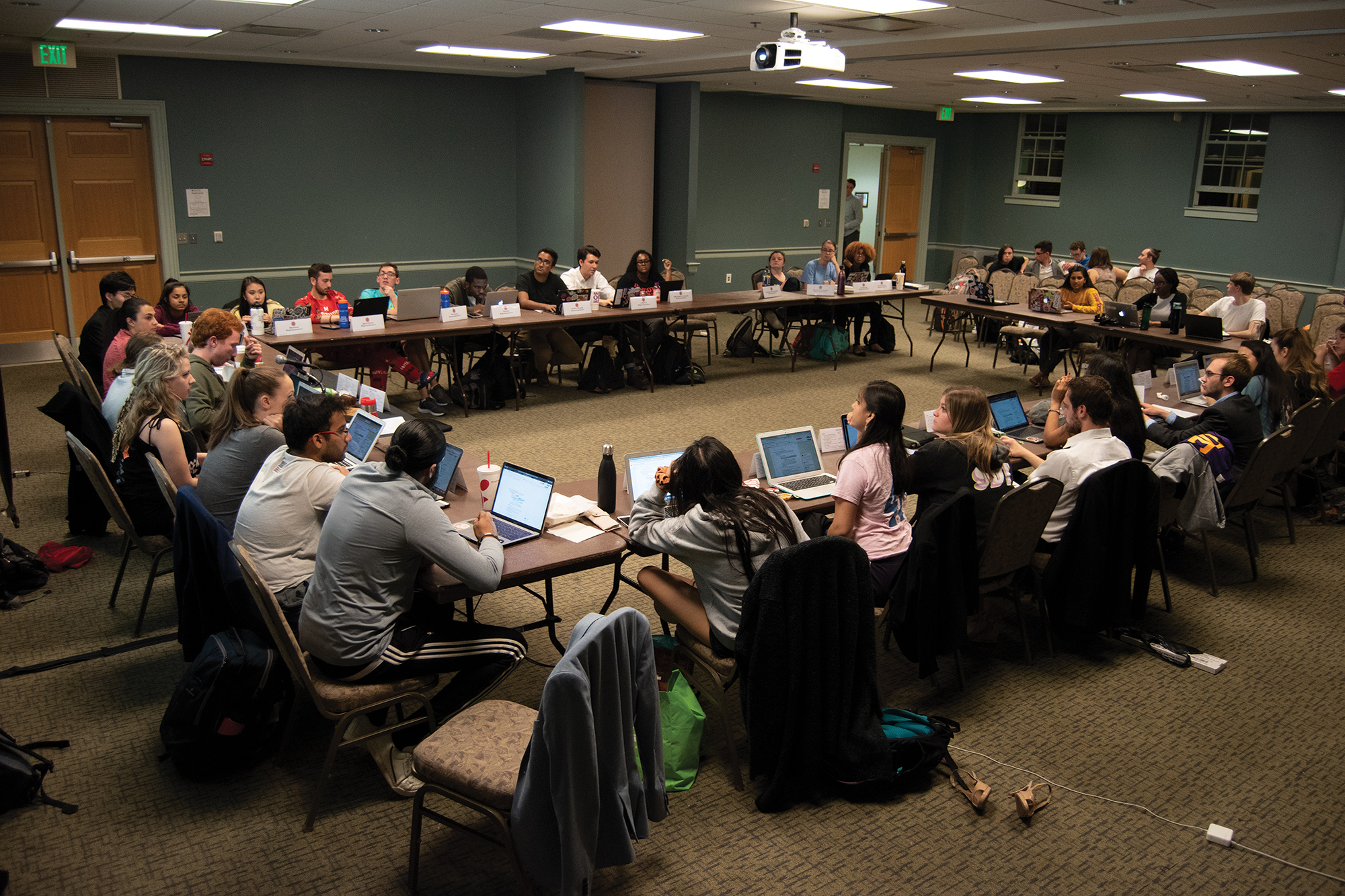The University of Maryland’s SGA rejected an amendment that would have added a diversity and inclusion vice president to its executive board, following an emotionally-charged debate early Thursday morning.
The amendment failed in a vote of 11-14 — taken at about 1 a.m. at the last meeting of the body’s legislative session — after about an hour-long discussion about the current state of diversity and cultural group representation on the campus.
Under the proposed amendment, a vice president of diversity and inclusion would have replaced the Student Government Association’s current diversity and inclusion director — an elevation for the role, said Maleeha Coleburn, who serves on the diversity and inclusion committee and sponsored the amendment.
The body currently has vice presidents for student, financial and academic affairs.
Coleburn was inspired to propose the amendment after the SGA’s former diversity and inclusion director, Taylor Green, resigned from her position in February. In her resignation letter — posted online earlier this month — Green accused the SGA of racism and ignoring marginalized students.
“When her letter of resignation came out, it became very clear that the director of diversity and inclusion was not being listened to,” said Coleburn, a junior government and politics and public policy major. “Director of diversity and inclusion should become a vice president position because that gives them more power, more say. It allows them to have a seat at the table where they need to be.”
[Read more: UMD SGA strikes down BDS bill after five hours of discussion]
In her letter, Green, who ran for SGA president, alleged she’d “witnessed patterns of racist, sexist, ableist, and transphobic behaviors, mirroring institutional discrimination experienced by so many of those marginalized and silenced within our campus community.”
“Every step I took within this organization was an attempt to begin dialogue around diversity issues as it related not only to SGA itself, but to the campus as a whole,” she wrote. “Every step I made was undermined.”
Legislators argued against adding a diversity and inclusion vice president for a variety of reasons, but each focused on the central argument that creating the role would not fix the issues students say they face.
Junior economics and international business major Samay Kindra voted against the amendment. Kindra said he worried the role would discourage the other vice presidents from focusing on diversity and inclusion efforts.
“To me, it seemed like it created even more issues that it solved,” he said.
However, Kindra emphasized the need for change.
“I am in full agreement, in this sense, that there are diversity and inclusion issues,” he said. “There is a disconnect with SGA and how we navigate that realm.”
Every year, the SGA reviews its governing documents, including its bylaws and constitution, to add any amendments or issues that come up during the semester, said outgoing president Jonathan Allen.
“If you allow amendments to go on the floor at any time, then you would have amendments every week so it would distract from our regular business,” the senior government and politics major said.
[Read more: The Diamondback’s coverage of 2019 UMD SGA elections]
While many legislators felt adding the diversity and inclusion vice president role was not a beneficial solution, they did not offer suggestions in its place.
“This is at least a step in the right direction to showing this campus, to showing the cultural groups and the cultural communities that we care about them and that we want to make up for all the wrongdoings in the past,” Coleburn said. “Only criticizing and not offering any solutions — it’s not helpful.”
Coleburn said her committee had been working to achieve those goals all semester, and that “not a single one of those legislators who had criticisms showed up to any of those meetings.”
Although the bill failed, president-elect Ireland Lesley said she hopes to use the momentum of the debate to address the issue of diversity both in and out of SGA moving forward.
“These conversations show when we’re hitting hard issues, and I think they’re really good tells of what people care about,” the junior government and politics major said. “It’s a good way to measure whether or not we’re talking about real issues.”
As part of her new administration, Lesley said she wants to focus on building relationships with student groups on the campus.
“I’m very committed to making sure that our diversity and inclusion chair is an integral part of all decisions that we make as an organization,” she said.



